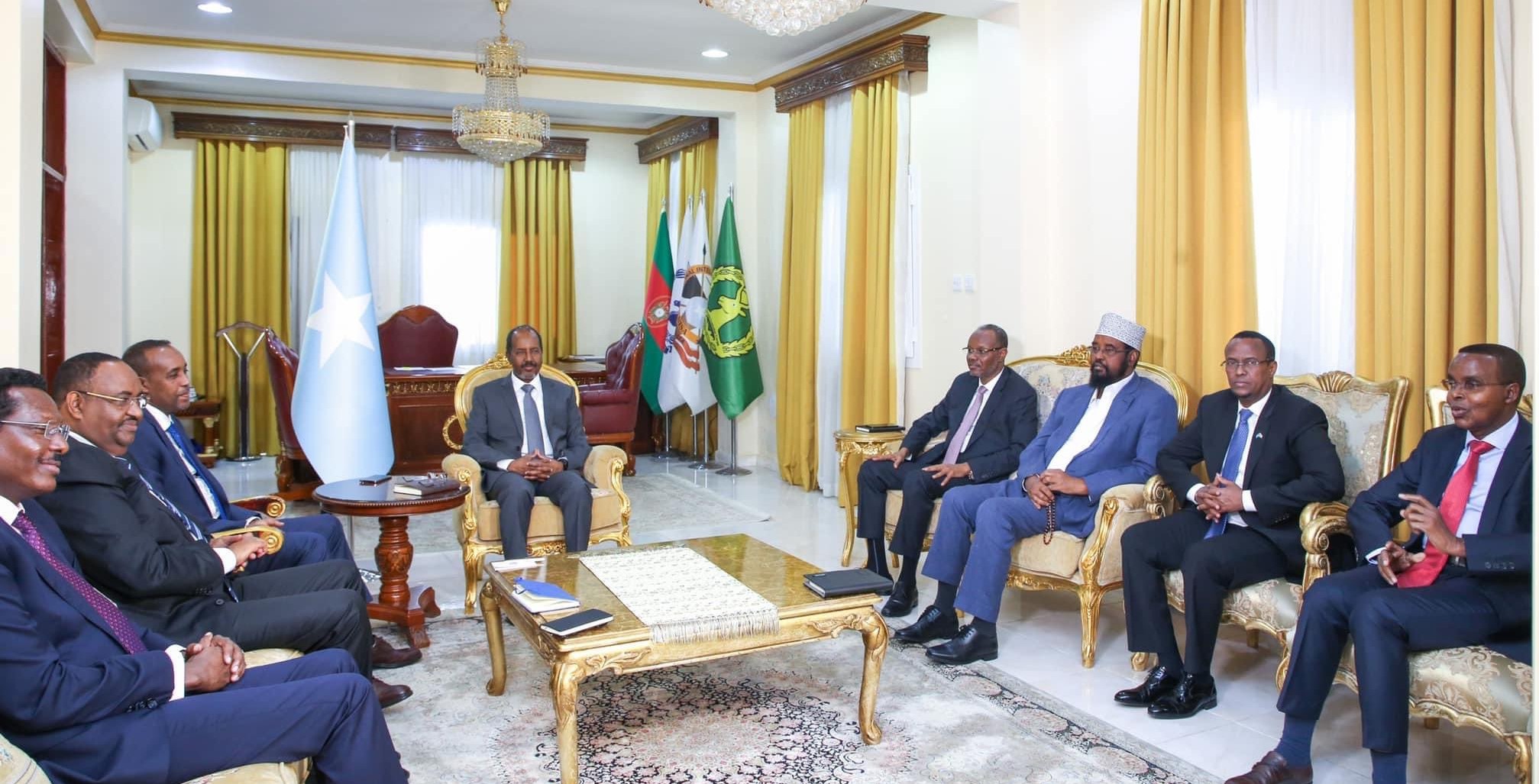Constitutional review, security top agenda in first Somali leaders’ talks

GOOBJOOG NEWS|MOGADISHU: President Hassan Sheikh Mohamud and the Federal Member States have set out seven priority areas they hope to focus on in the next four years as the new president seeks a closer working relationship with the regional government heads.
A two days National Consultative Council meeting bringing the two sides together, Prime Minister Mohamed Roble and Banaadir Regional Administration governor Omar Filish concluded with a joint communique on Sunday.
The Council agreed to fast-track the constitutional review process noting that it should be inclusive incorporating national and regional governments and civil society. The completion of the review process will be a major achievement for the new administration ending a decade-long process. The current Provisional Constitution was adopted by parliament in 2012 when President Mohamud first came into office. Over five drafts of the document are currently in place following a series of reviews by various state organs.
Security
Secondly, the Council agreed to decentralize security and rebuilding of the national army to effectively fight terrorism. Somalia adopted a National Security Architecture in 2017 which was subsequently endorsed by the international community in May 2017 in London within the broader framework of the Security Pact. The NSA envisaged the creation of a 22,000-strong national army including 4,000 special forces. Further, 32,000 police forces would be put in place spread within the federal and state level. However, the implementation of that agreement has not yet come to fruition.
Revisiting this issue will be the president’s top priority considering the expected exit of the African Union Transitional Mission (ATMIS) in 2024 in line with the UN Security Council resolution.
Further, the Council affirmed the need for a unified electoral system and democratic elections in the country. This should pave way for a one-person-one-vote election which has been missed two times now.
Another key item agreed to by the NCC is political and social reconciliation and resolution of issues that have ‘plagued the government’. Relations between the Federal Government, Federal Member States, opposition and other stakeholders suffered a major hit during the just-ended term of President Mohamed Farmaajo. At some point in April 2021, a military show-down ensued in Mogadishu pushing the country to the brink of war following attempts by Farmaajo to extend his term by two more years.
Somalia-Somaliland talks
Talks between the Federal Government and the break-away region of Somaliland will also be given priority, the communique read in part. Talks failed to commence during the Farmaajo term following the souring of relations between the two sides. The situation was exacerbated by the Gulf Crisis which saw Somaliland and FMS side with the Saudi-UAE axis while the FGS claimed neutrality but subtly stood with Qatar.
The completion of the federalism project is also among the priority issues agreed to by the NCC. This involves the completion of the federating units such as district councils and wards among other federal units. Implementing fiscal federalism is also key in supporting the functioning of the federal system. This entails the distribution of functions between the two levels of government and clearly defining financial relations.
Finally, the Council agreed to implement the establishment of an independent, transparent and accountable judiciary. Out of the three arms of government, the judiciary remains the least formed arm and has widely suffered from executive influence. Judicial reforms is also expected to cover infrastructure development and capacitation to ensure justice is devolved and rendered on time.